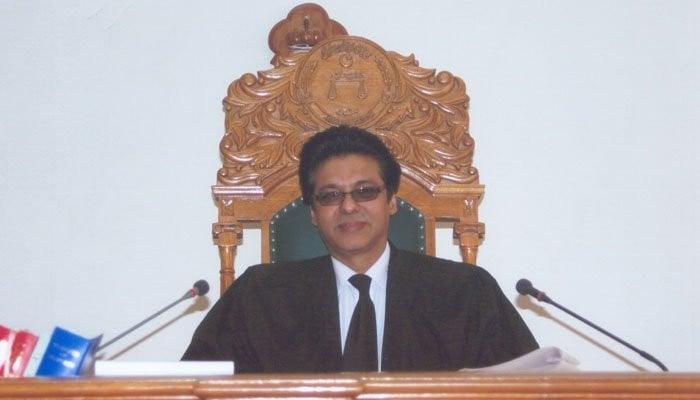Islamabad:
A five-member constitutional bench (CB) from the Supreme Court on Friday raised several inquiries about a fresh oath of the High Court judges after their transfer to another Supreme Court and the status of their seniority in the event of their new positions.
CB leader Justice Muhammad Ali Mazhar told the lawyer of the petitioners in the judges’ transfer case that there were contradictions in his arguments. He raised the question of how a judge could take more oaths.
When the hearing of the case began, the petitioner’s lawyer’s lawyer Faisal Siddiqui quoted the example of India, where the judges were not asked for their consent to their transfer. Therefore, he added that when the judge was transferred there, his seniority remained unaffected.
In Pakistan, he said the appointment of the judges was mandatory for the legal commission, but it was not mandatory for the president to transfer judges. Justice Mazhar noted that the president had the constitutional authority to transfer judges.
As he sat on the bench, Justice Salahuddin Panhwar Siddiqui recalled that he had said he would focus on the question of seniority in his arguments. The lawyer replied that the transfer of judges was time bound and cited the appointment of the Supreme Court judges to the Federal Shariat Court (FSC) for three years.
Justice Mazhar asked the lawyer what was the connection between the appointment of judges to FSC and the question of transfer.
He said the status of a judge for FSC was higher, while the status of a judge transferred from one Supreme Court to another Supreme Court remained the same.
Siddiqui said Justice Asif was an additional judge, so how an additional judge could be appointed as IHC judge upon transfer.
At one point, Justice Naeem Akhtar Afghan said that the authority of the judicial commission could not be made ineffective by appointing permanent judges through transfer.
Justice Mazhar asked the lawyer what if the transferred judges were transferred back to their original Supreme Court, what would be their seniority there. The lawyer replied that when a judge was sent to the Supreme Court as acting judge, his seniority in High Court was not affected.
During the hearing, Justice Mazhar noted that the basic question of the case was whether the transferred judge would make fresh oaths, but there were contradictions in the arguments that were forwarded by the petitioner’s lawyers.
On the one hand, Justice Mazhar said Siddiqui that he argued that the transferred judge should take a fresh oath while on the other, it was stated that the transfer could not be permanent. How a judge could take two or three oaths at the same time, he asked.
Justice Mazhar noticed that when a judge made a new oath, the old oath would be canceled. He also said that in the Supreme Court there was a difference between a acting judge and a transferred judge. Later, the hearing was postponed until Monday.



